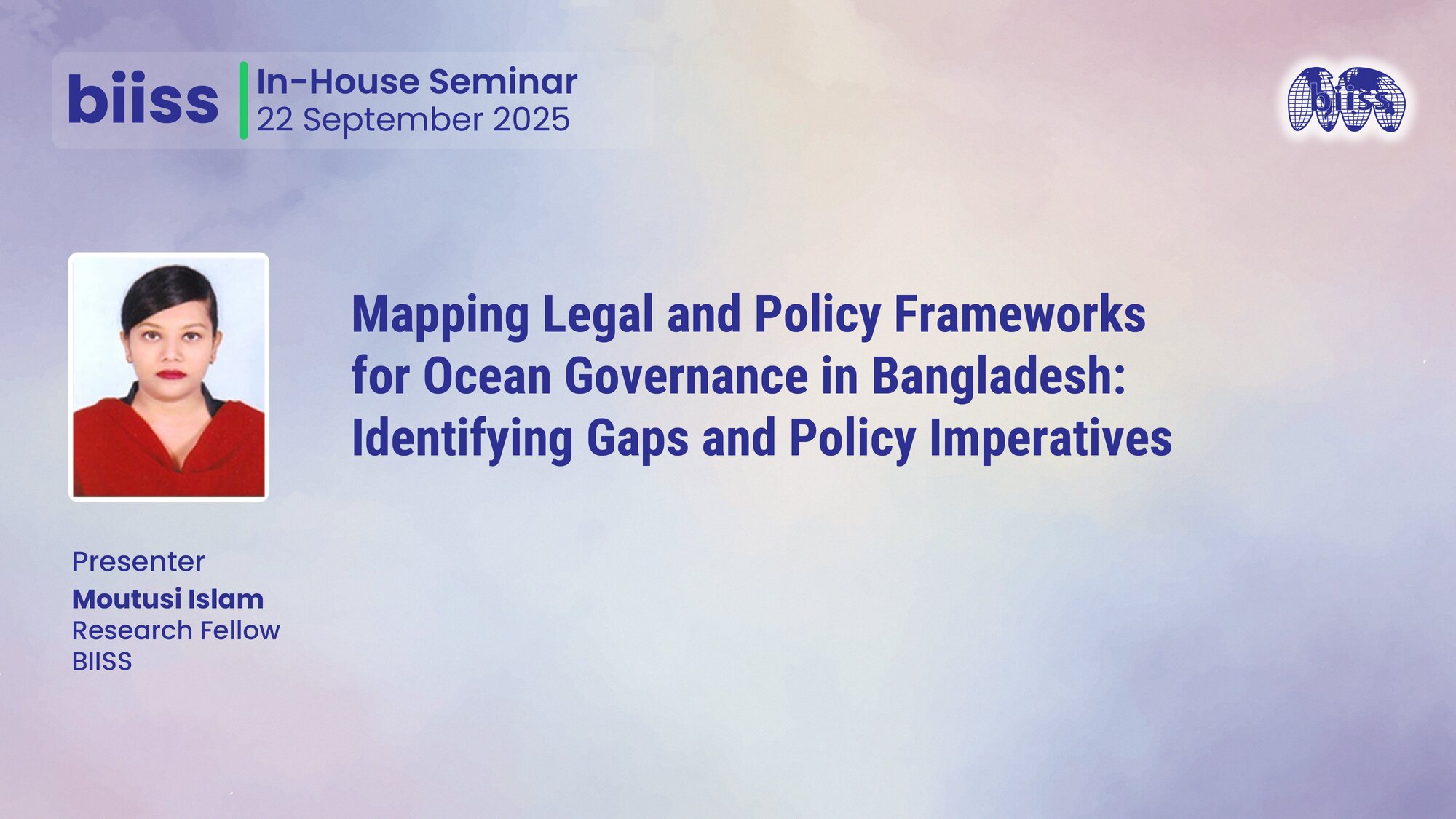
This in-house seminar explores how Bangladesh can modernize and align its ocean governance architecture with contemporary legal standards, blue economy goals, and sustainability commitments. Participants examine the existing suite of domestic laws related to maritime zones, fisheries, shipping, ports, environmental protection, and marine scientific research, and then compare these provisions with the United Nations Convention on the Law of the Sea, regional instruments in the Bay of Bengal, and emerging global norms on biodiversity beyond national jurisdiction and marine pollution control. The session maps institutions that share overlapping mandates across ministries and agencies, highlighting gaps in coordination, compliance monitoring, data sharing, and enforcement. Emphasis is placed on practical instruments such as marine spatial planning, ecosystem based management, strategic environmental assessment, and integrated coastal zone management, along with the enabling regulations that help translate these tools into routine administrative practice. The seminar further reviews licensing and permitting pathways, the design of sanctions and incentives, and mechanisms for stakeholder participation by coastal communities and private investors. Discussions cover technology and capacity needs for hydrography, surveillance, and ocean data. The group considers options for a streamlined policy roadmap that phases reforms, clarifies mandates, strengthens interagency platforms, and builds a transparent decision record across the policy cycle. Participants aim to generate actionable recommendations that improve compliance, reduce transaction costs for maritime activity, and protect critical habitats while advancing national objectives for security, trade, energy, and climate resilience.
